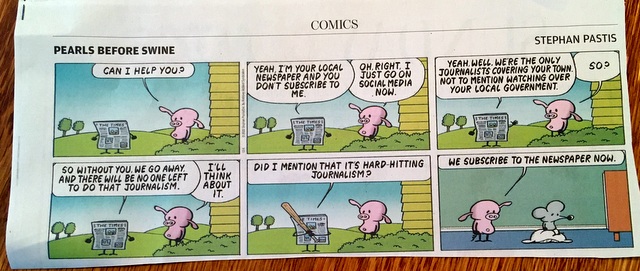The Art of Newswriting
In an era when news often feels rushed and superficial, there’s something refreshing about looking back at the craft of reporting as it once was—where curiosity, patience, and empathy shaped the stories that truly mattered.
As a former weekly paper reporter, I learned early on that being a good journalist was about more than just asking questions. It was about listening deeply, holding space for the unexpected, and sometimes sitting in silence until the real story surfaced.
A long, pregnant pause in an interview can be unnerving for the subject, but it’s also a powerful tool. It creates a moment where the interviewee, caught off guard by the quiet, often reveals something genuine. It’s in these pauses that truth often hides.
And then there’s the closing question I came to rely on: “Was there something I should have asked you but didn’t?” This simple line can turn an interview on its head, prompting reflection and sometimes delivering the key insight that shifts the entire story.
Interviewing people in their homes added another layer of discovery. I learned early on to ask to use the restroom—not out of necessity, but as a chance to quietly open the vanity cabinet or take in what people collected when I could see into other rooms. A collection of salt and pepper shakers might not be the headline, but it adds texture and sparkle to an otherwise straightforward piece, helping readers see the subject as a real person with quirks and stories beyond the main topic.
All this had to be done on a tight schedule, generally forty-five minutes or less. Weekly newspapers don’t have the luxury of months to develop a story. Quick, sharp, and compassionate was the order of the day.
I especially treasured the “hit in the heart” stories—those about people with disabilities, or community efforts like the angel tree at Christmas. One year, my reporting on the angel tree helped raise $20,000—the most the local social services office had ever received. It was proof that words could move people to action.
It’s too bad that today’s news media often lean more toward entertainment than actual information. I saw my work as an educational guide for my readers, a way to give them facts and context they otherwise wouldn’t have, delivered in a way they could understand. I included backstory when necessary, so the issues became clearer and more meaningful. I wish today’s journalists would focus more on educating their readers than entertaining them. I think we would all be better off.
Today’s journalism landscape often prioritizes speed, clicks, and entertainment value over depth and empathy. The art of holding space in an interview, of asking the tough but thoughtful questions, seems to be fading.
But there’s a lesson in those quieter, more deliberate moments: true journalism isn’t about performance. It’s about building trust, being patient, and caring enough to wait for the real story to emerge.
As I reflect on my years reporting, I realize those experiences weren’t just about gathering facts. They were about honoring the humanity behind each story.





















